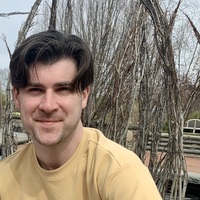James M Fitz Gerald
Bentley University, English and Media Studies, Faculty Member
This essay reads Toni Morrison’s Home (2012) against the backdrop of the United States’ well-documented patterns of unconstrained experimentation on racial-minority patients. The essay focuses specifically on contexts of mid-century... more
This essay reads Toni Morrison’s Home (2012) against the backdrop of the United States’ well-documented patterns of unconstrained experimentation on racial-minority patients. The essay focuses specifically on contexts of mid-century eugenics, which exposed black Americans, often women, to nonconsensual and nontherapeutic surgical procedures. I argue that Home is not only informed by these traumatic histories of medical violence but is also able to construct an ethics of care out of them through the imperative of loving mean–a de-idealized love concerned less with sympathy than with survival. In so doing, the novel advances intersubjective forms of healing that challenge the systemic roots of reproductive racism and make possible the potential for meaningful recovery from both physical and historical trauma.
Research Interests:
Research Interests:
This essay examines the cultural and political terrain of US health intervention in the early twentieth-century Philippines. It focuses specifically on the relationship between colonial-economic refugeeism and physical illness in Carlos... more
This essay examines the cultural and political terrain of US health intervention in the early twentieth-century Philippines. It focuses specifically on the relationship between colonial-economic refugeeism and physical illness in Carlos Bulosan's America Is in the Heart. Unlike other scholarship on the novel, my study explores a transnational vision of care that informs Bulosan’s depiction and defense of Popular Front politics. I argue that the novel is structured by but also imagines radical alternatives to racialized clinical categories emerging from U.S. imperialism and immigration policy.
Research Interests:
In his 1936 essay ‘Narrate or Describe’, György Lukács writes: ‘when a writer attempts as an observer and describer to achieve a comprehensive description, he must either reject any principle of selection, undertake an inexhaustible... more
In his 1936 essay ‘Narrate or Describe’, György Lukács writes: ‘when a
writer attempts as an observer and describer to achieve a comprehensive description, he must either reject any principle of selection, undertake an inexhaustible labour of Sisyphus or simply emphasize the picturesque and superficial aspects best adapted to description’. Nearly 80 years later, Bruno Latour would write that description is ‘the highest and rarest achievement’. However differently these two thinkers conceive of description, the passages above seem to mark the crux of a contemporary problem for literary studies. The recent groundswell of methodological polemics on the one hand (Rita Felski, Heather Love, Stephen Best and Sharon Marcus) and formal polemics on the other (Caroline Levine, Anna Kornbluh, W. J. T. Mitchell) appears to be symptomatic of an anxiety about literary studies more generally. We might best be able to capture this anxiety in the form of a question: what exactly is it that we—literary scholars—do? This article argues that the (re)turn to form and the turn to post-critique are of a shared moment and derive from this shared concern. Further, and perhaps most crucially, we argue that no amount of surface topography nor formal ingenuity will answer the question that undergirds both. Rather, we argue that it is an attention to form at its limits that will serve our contemporary moment. As such, we turn to the work of Edward Said as a case study for literary criticism and theory that anticipates these contemporary debates and suggests various ways forward.
writer attempts as an observer and describer to achieve a comprehensive description, he must either reject any principle of selection, undertake an inexhaustible labour of Sisyphus or simply emphasize the picturesque and superficial aspects best adapted to description’. Nearly 80 years later, Bruno Latour would write that description is ‘the highest and rarest achievement’. However differently these two thinkers conceive of description, the passages above seem to mark the crux of a contemporary problem for literary studies. The recent groundswell of methodological polemics on the one hand (Rita Felski, Heather Love, Stephen Best and Sharon Marcus) and formal polemics on the other (Caroline Levine, Anna Kornbluh, W. J. T. Mitchell) appears to be symptomatic of an anxiety about literary studies more generally. We might best be able to capture this anxiety in the form of a question: what exactly is it that we—literary scholars—do? This article argues that the (re)turn to form and the turn to post-critique are of a shared moment and derive from this shared concern. Further, and perhaps most crucially, we argue that no amount of surface topography nor formal ingenuity will answer the question that undergirds both. Rather, we argue that it is an attention to form at its limits that will serve our contemporary moment. As such, we turn to the work of Edward Said as a case study for literary criticism and theory that anticipates these contemporary debates and suggests various ways forward.
Research Interests:
This essay is concerned with contemporary writing center and composition studies and focuses on including fiction in both the theory and practice of writing centers and classrooms. Stemming from contemporary theorists such as Andrea... more
This essay is concerned with contemporary writing center and composition studies and focuses on including fiction in both the theory and practice of writing centers and classrooms. Stemming from contemporary theorists such as Andrea Lunsford and Min-zhan Lu, my work incorporates Sapphire's (1996) novel, Push, to highlight the unique perspectives fiction can give as to how we approach teaching and tutoring students. Offering fiction as impacting both theory and practice – in its potential inclusion within tutor-training syllabi, for instance – I assert that fiction is an untapped resource for writing center and pedagogical studies that is often overlooked or cast aside. By also including race and education theorists such as Laura Greenfield, Karen Rowan, and Victor Villanueva, my analysis of Sapphire's work makes evident the potential for fiction to more thoroughly inform our strategies for teaching writing.
